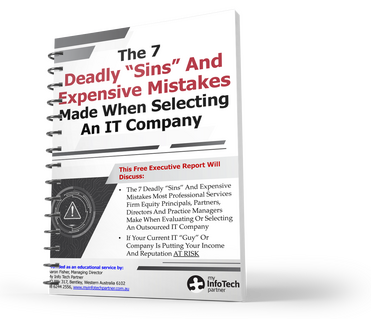
“Thank goodness” is probably what United States Illinois-based manufacturing company International Control Services (ICS) thought about having a cyber insurance policy with Travelers Insurance after a data breach in 2022.But after claims investigators pulled out their microscopes, they found that ICS failed to use multi-factor authentication(MFA) across all their digital assets, which they had agreed to do in their policy. Travelers sued ICS and won. The policy was rescinded, and so were ICS’s feelings of gratitude, which likely evolved into worried whispers of “Oh, crap.”
Smart firms and businesses like yours are adding cyber liability insurance to their policies because they know good security hygiene is just as much a competitive advantage as a way to reduce business risk. But with cyber insurance premiums steadily increasing – they rose 62% last year alone – you want to make sure your claim is paid when you need it most.
Why Claims Get Denied
“Most claims that get denied are self-inflicted wounds,” says Rusty Goodwin, the Organized Efficiency Consultant at Mid-State Group, an independent insurance agency located in Virginia, United States.
Though we like to paint insurance companies as malicious money-grubbers hovering oversize “DENIED” stamps over claims, denials are usually the result of an accidental but fatal misrepresentation or omission by businesses and firms or simply not letting an insurer know about changes in their security practices. However, there are simple steps you can take to prevent a claim-denial doomsday.
4 Secret Ways To Make Sure Your Claim Doesn’t Get Denied
1. Find a good broker to help you understand your policy.
There’s no doubt that insurance policies are tedious, filled with legal lingo that makes even the Aflac Duck sweat. Nevertheless, there are several parts to an insurance contract you must understand, including the deck pages (the first pages that talk about your deductible, total costs and the limits of liability), the insuring agreements (a list of all the promises the insurance company is making to you) and the conditions (what you are promising to do).
“If your broker can help you understand them and you can govern yourself according to the conditions of that contract, you will never have a problem having a claim paid,” says Goodwin.
Some brokers don’t specialise in cyber insurance but will take your money anyway. Be wary of those, Goodwin warns. “If an agent doesn’t want to talk about cyber liability, then they either don’t know anything about it or they don’t care because they won’t make a lot of money off it.” If that’s the case, he says, “take all your business elsewhere.”
2. Understand the terms and conditions.
Insurance companies are happy to write a cheque or deposit into your bank account if you’re breached if and only if you make certain promises. These promises are called the conditions of the contract. Today, insurance companies expect you to promise things like using multi-factor authentication and password managers, making regular data backups with multiple copies and at least one offsite, and hosting phishing simulation and cyber security awareness training with your employees.
Understanding the conditions is critical, but this is where most firms and companies go wrong and wind up with a denied claim.
3. Make good on your promises.
If you’ve ever filled out a homeowners insurance application, you know you’ll get a nifty discount on your premium if you have a security alarm. If you don’t have one, you might tick “Yes,” with good intentions to call a security alarm installer to schedule an installation. You enjoy your cheaper premium but are busy and forget to install the alarm (nobody comes around to check anyway).
Then, your home gets broken into. “Guess whose insurance claim is not going to be paid?” Goodwin says. “The power is in our hands to ensure our claim gets paid. There’s really nothing to be afraid of as long as you understand the promises that you’re making.”
This happens all the time in cyber liability insurance. Firms and businesses promise to use multi-factor authentication or host training but don’t enforce it. As in the case of ICS, this is how claims get denied and you end up footing a very large recovery bill, possibly into the millions of dollars.
4. Don’t assume your right hand knows what the left hand is doing.
Goodwin sees firm and companies make one big mistake with their insurance policies: making assumptions. “I see Managing Partners, Managing Directors, CEOs, CFOs, or business owners assume their IT service provider is keeping all these promises they’ve just made, even though they never told their IT support provider about the policy,” he says. IT service providers are good at what they do, “but they aren’t mind readers,” Goodwin points out.
Regularly review your policy and have an open and transparent line of communication with your IT department or outsourced IT provider so they can help you keep those promises.
“We’re the architect of our own problems” Goodwin says. And the agents of our own salvation if we’re prepared to work with a quality broker and make good on our promises.
If you’re secretly anxious that your IT Service Provider is leaving you exposed to a denied claim that causes you hundreds of thousands or millions of dollar recovery bill. Then I urge you to act at once and book a complimentary strategy session with our team, so we can help you avoid that. Click or tap here or call us on 08 6244 2556.
My Info Tech Partner is a trusted IT Services and IT Support provider in Perth that specialises in helping the equity principals, partners, directors, and practice managers of legal, accounting and financial services firms from making big expensive mistakes with technology and ultimately, protect their income.
Naturally, we are the only one that offers you enhanced peace of mind with our “Never Pay The Ransom” $10,000 Money Back Guarantee.





 Contact Us On
Contact Us On



